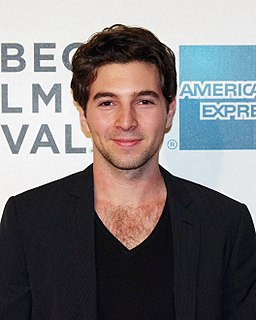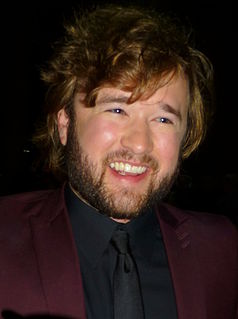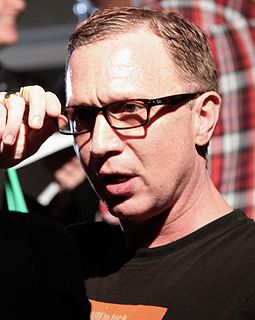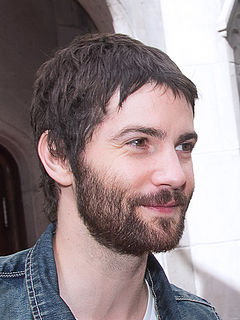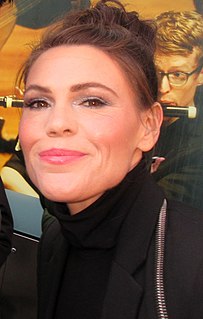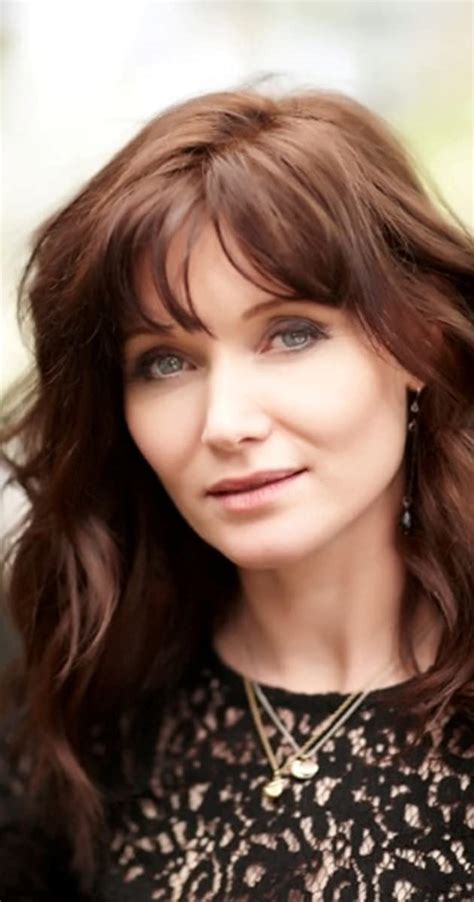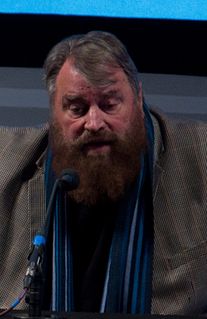A Quote by Roberto Aguire
I trained at the Lee Strasberg Institute at Tisch, which is a huge foundation for young actors. They teach you their methods and give you the sense that acting is much more tangible than most people think. I think there's a mysticism of what acting is, in the fact that it's this ungraspable, spur-of-the-moment thing that nobody can understand.
Related Quotes
My education was a huge influence. I trained at the Lee Strasberg Institute at Tisch, which is a huge foundation for young actors. They teach you their methods, and give you the sense that acting is much more tangible than most people think. I think there's a mysticism of what acting is, in the fact that it's this ungraspable, spur-of-the-moment thing that nobody can understand.
It certainly helps, I think, with some actors to understand the process of acting. You see what extraordinary pressure they're under, there's a huge circus dedicated to a particular moment and they're got to deliver and it can help that you, even if empathetically alone, understand what they're doing.
I think there's a lot of mythos about what's required in acting. The way that actors talk about acting is generally quite punishing, and I think actors want to put forward the idea that they do all of this work because, you know, it's a post-De Niro world, when, largely, in fact, it's almost never true.
When you're young, you get by on charm and good looks, not that I miss being charming or good-looking, but then you start to understand things about life, about the craft of acting. You approach it a different way. It's much more fun now than it was, because you take more chances and risks. I enjoy acting now more than when I was young.
British actors come at acting from a slightly different angle. Because a lot of the films are cast out there, they are so used to the angle from which the Americans, and certainly the young guys from L.A., are coming at it, that I think it's interesting for them to find these English actors who maybe approach acting from a different place.
British actors come at acting from a slightly different angle. Because a lot of the films are cast out there, they are so used to the angle from which the Americans, and certainly the young guys from LA, are coming at it, that I think it's interesting for them to find these English actors who maybe approach acting from a different place.
I think the unemployment rate for actors is pretty much the same in Sydney, London and New York. In all three cities, there are more actors than there are jobs. But I do think that there are far more acting opportunities in London and New York than in Sydney, where there are approximately seven actors that you see over and over again in every play.
A lot of directors on a base level are fearful of actors and maybe even distrustful. I love the craft of acting and I love actors so I think they can probably sense that. They also know that I understand what their process is, having done it myself. The thing I come back to over and over again is that for most people who are not analyzing it from a critical point of view, most iconic film moments are actor moments. We show up to commune with another human being and their experience. We don't show up necessarily to watch a really cool dolly shot.
